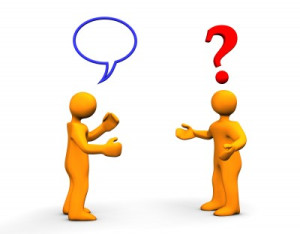Why you should never say these ten things to a translator (Part 2 of 2)
Medical Pharmaceutical Translations • Aug 24, 2015 12:00:00 AM

Last week, I explained why translators hate hearing the first five of these ten statements. If you didn’t read that post, click here. Otherwise, read on for the rest of the list:
“You only know three languages?” When you think about how deeply a translator has to study and understand a language and culture, three is actually pretty good! It’s better to have someone with an extensive knowledge of one or two languages, than a polyglot who may really have only a basic comprehension of many.
“Why don’t (or didn’t) you study *insert language name here*?” There are so many reasons why a translator chooses the language(s) they specialize in. But obviously, their choice was pretty well thought-out, since they were able to master the language(s) and get so familiar with its/their culture(s). Still, to be honest, this question bothers me much less than the other ones on the list, because it’s a pretty reasonable one. There are some languages it could be advantageous to learn. I’ve even experienced this situation in real life: When I was in high school, one of my uncles urged me to learn Mandarin. But I just didn’t feel a particular draw to it, and chose to study Spanish as my third language, instead. The heart wants what the heart wants.
“So you do translations from home? Is that a job?” As a freelance writer and translator who works from home, yes, it is a job. Where you work is not nearly as important as how much and how well you work. And if someone is turning in excellent translations to you, they’ve been working hard. Even if they’ve been doing that work in pajamas.
“So you’re a translator…you do simultaneous translation, right?” For me, this is a “how you say it” kind of thing. There are a lot of specialized areas of translation, and for various reasons, not all translators do every one of them. Never assume a translator is going to cover every aspect of their field. It would be like saying “So you’re a lawyer…you do environmental law, right?” You can ask – just ask politely, and don’t act shocked or judgmental if the translator says they don’t.
“What does *insert word without context here* mean? You’re a translator, you should know it!” I can’t tell you how many times I’ve heard this one, or something similar…and ended up feeling unfairly ashamed. Language is a subtle thing that depends on so many factors. If I ask you, “What does ‘cats’ mean?”, you’d tell me cats that cats are a kind of animal. But maybe I didn’t realize it was important to mention that these words were part of the phrase “It’s raining cats and dogs”. Now, the word takes on a different nuance. This isn’t just the case with idiomatic expressions. So please don’t hate on a translator who can’t respond to this question, or who ends up giving you “the wrong answer”.
Hopefully these explanations have helped you better understand what a professional translator really does, and what kind of work you should expect from us. The next time you’re talking to a translator, please keep this list in mind. And if you’re looking for a translator who’s probably heard all of these statements before and is still cheerful and professional, aiaTranslations has you covered. Click here to find the perfect one for you.
#aiatranslations #foreignlanguage #humantranslators #translations
